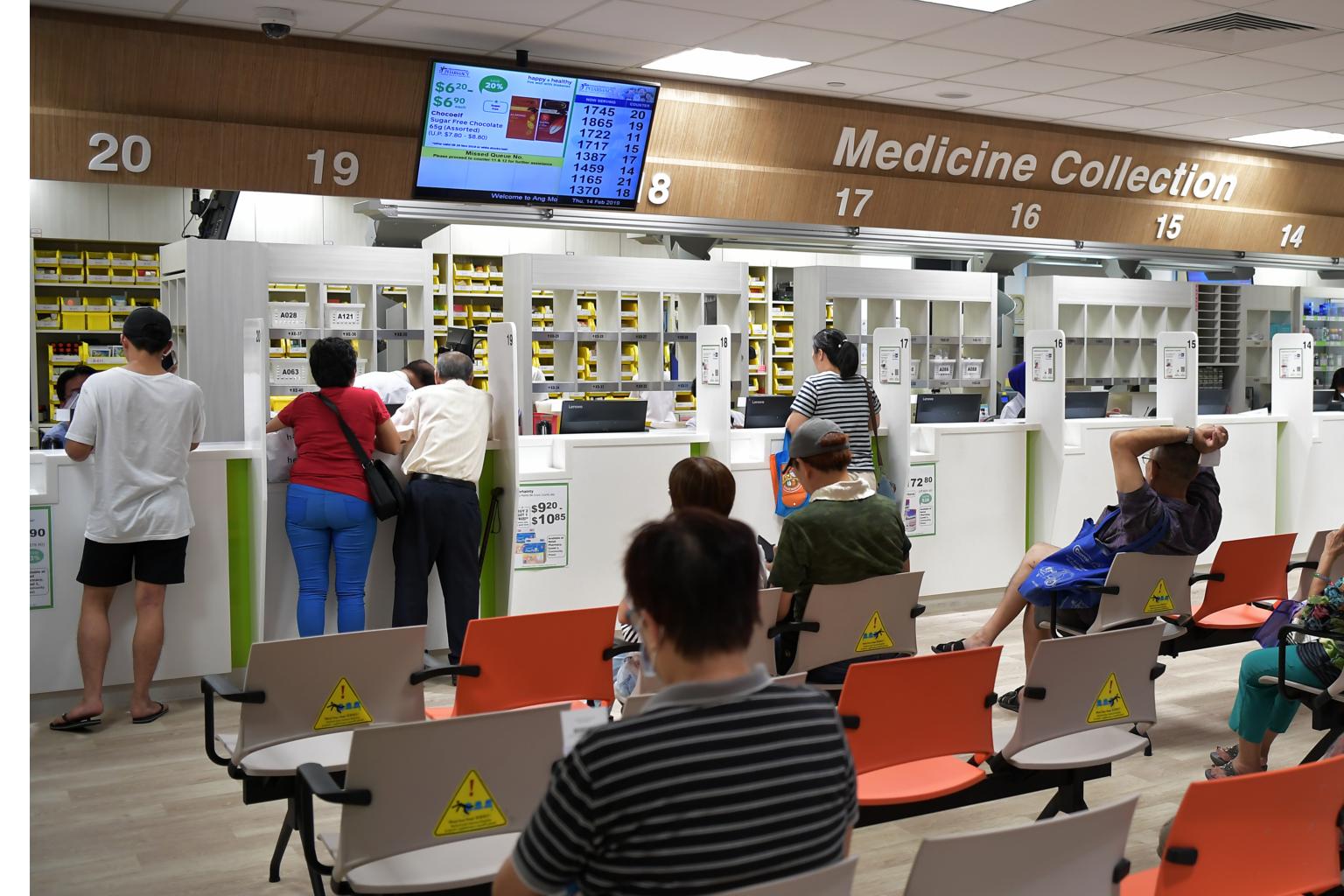No flu cases at S'pore polyclinics in more than 8 months
Sign up now: Get ST's newsletters delivered to your inbox

People were urged to vaccinate against the flu last year to avoid being mistaken as having Covid-19 infections.
ST PHOTO: KUA CHEE SIONG
SINGAPORE - There has not been a single case of confirmed influenza at any of the more than 60 polyclinics and sentinel general practice clinics here in more than eight months - something not seen in the past decade.
These polyclinics and GP clinics are used by the Ministry of Health (MOH) to monitor for possible outbreaks, and to track influenza strains.
Until the circuit breaker in April last year, and the introduction of safety measures for Covid-19, such as the wearing of masks, there has not been a month without any laboratory-confirmed cases of influenza since the MOH started monitoring for flu more than a decade ago.
Samples from some patients who appear to have influenza at these clinics are sent to the National Public Health Laboratory for testing.
The last case that tested positive for influenza, according to the MOH's weekly infectious diseases bulletin, was one person with type A influenza in May last year. Similarly, there was also only one case of influenza diagnosed in April.
An MOH spokesman said: "This is the first time such a steep decline in influenza activity has been observed since the start of the surveillance programme."
In contrast, the bulletin had 320 people testing positive for the flu virus in January last year, out of a sample of 652 people who had flu-like illness.
The high numbers at the turn of the year were "not unexpected", said the spokesman, "as it was the winter season in the north hemisphere where influenza usually circulates widely".
But in January this year, not one out of the 231 people with flu-like illness who were tested actually had influenza.
The spokesman said the MOH continues to test 200 to 250 samples for influenza per month.
Aside from safety measures that are still in place, Dr Asok Kurup, who chairs the Academy of Medicine's Chapter of Infectious Disease Physicians, said the lack of confirmed flu cases could also be due to the good take-up rates for influenza vaccines last year.
People were urged to vaccinate against the flu last year to avoid being mistaken as having Covid-19 infections, as both diseases share some symptoms, such as fever, fatigue and cough.
Dr Kurup added that "people were also not travelling and bringing back all sorts of bugs".
Associate Professor Lim Poh Lian, a senior consultant at the National Centre for Infectious Diseases, agreed that "sharply decreased year-end travel, both inbound and outbound" had reduced the import of flu and other respiratory viruses.
But Associate Professor Hsu Li Yang of the National University of Singapore's Saw Swee Hock School of Public Health said not everyone may have sought treatment, especially if they had a mild infection.
He said: "It is also plausible that a significant minority of people might have avoided seeing their GPs or polyclinic doctors for mild acute infectious symptoms in 2020, in order to avoid getting tested for Covid-19 and getting five days of medical leave."
The MOH spokesman said the incidence of influenza is now at "extremely low levels in both Singapore and globally".
But she cautioned: "However, as we open our borders and progressively resume economic and social activities, the number of person-to-person interactions in the population will increase.
"Thus, it is not unexpected that we will observe a rise in influenza activity."
The ministry urges people to "continue to observe good personal hygiene measures, wear a mask especially when ill, seek medical attention early and not go to school or work when sick" to reduce the spread of the flu virus.


